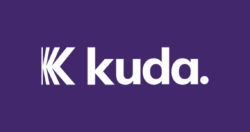
source: unsplash.com
In the pursuit of financial freedom, strategic saving is a cornerstone that empowers individuals to build a secure and prosperous future. While the road to financial independence may seem daunting, implementing proven strategies can make the journey more manageable and effective. This article explores seven strategies that, when applied consistently, can maximize your savings and pave the way to achieving true financial freedom.
- Establish Clear Financial Goals:
The foundation of effective saving begins with setting clear and achievable financial goals. Whether it’s creating an emergency fund, buying a home, or retiring comfortably, defining your objectives provides focus and motivation. Break down these goals into short-term and long-term targets to create a roadmap for your financial journey.
- Automate Your Savings:
Leverage the power of automation to make saving a seamless part of your financial routine. Set up auto. transfers from your checking to your investment accounts. This ensures that a portion of your income is consistently directed toward your financial goals without requiring constant manual intervention.
- Create a Realistic Budget:
Develop a comprehensive budget that aligns with your financial goals. Categorize your income, fixed expenses, variable expenses, and savings. Regularly review and adjust your budget to accommodate changes in income, expenses, or financial priorities. A realistic budget serves as a guiding tool for effective financial management.
- Cut Unnecessary Expenses:
Identify and trim unnecessary expenses to free up additional funds for savings. Analyze your spending habits and distinguish between needs and wants. Consider negotiating bills, exploring cost-effective alternatives, and eliminating non-essential expenditures to redirect money toward your savings goals.
- Take Advantage of Employer Benefits:
If your employer offers benefits such as a 401(k) match or other retirement contributions, take full advantage of these opportunities. Employer-sponsored programs can significantly boost your savings without impacting your take-home pay. Maximize these benefits to accelerate your progress toward financial freedom.
- Eliminate High-Interest Debt:
High-interest debt can hinder your savings potential. Prioritize paying off debts with high interest rates, such as credit cards or personal loans. Adopt a systematic approach, like the debt snowball or avalanche method, to efficiently reduce and eliminate outstanding debts, freeing up more resources for savings.
- Diversify Your Investments:
Maximize the growth potential of your savings by diversifying your investments. Explore a mix of assets, including stocks, bonds, real estate, and other investment vehicles. Diversification helps spread risk and enhances the resilience of your portfolio, contributing to long-term financial stability.
Conclusion:
Achieving financial freedom requires a combination of strategic planning, discipline, and a commitment to saving consistently. By establishing clear goals, automating your savings, creating a realistic budget, cutting unnecessary expenses, taking advantage of employer benefits, eliminating high-interest debt, and diversifying your investments, you can maximize your savings potential. Remember, financial freedom is a journey, and these proven strategies will guide you toward a future of economic empowerment and security.







